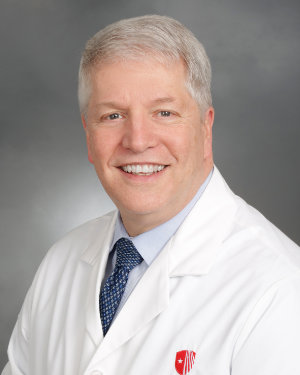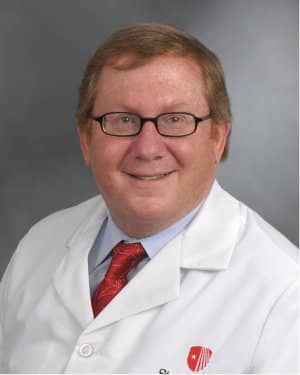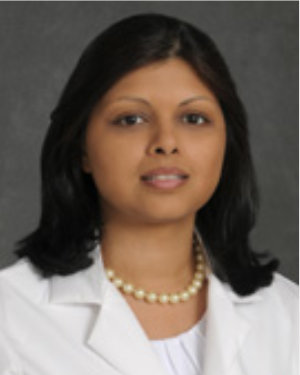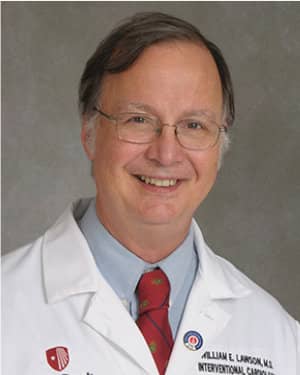Left Navigation - Heart Failure and Cardiomyopathy Center
How a Monitoring Device Helps Patients with Heart Failure
Heart failure means that the heart is not pumping blood as well as it should, so the body isn’t getting the oxygen and nutrients it needs. In the early stages, patients may not have any symptoms. But as heart function worsens, people can have shortness of breath (at rest or with activity), bloating, swelling, weight gain and/or fatigue. If left untreated, the disease is life-threatening with many patients requiring hospitalization to help get their symptoms under control.
Daily Monitoring Helps Prevent Worsening Symptoms
Mr. Thomas Indence is one such patient whose heart failure had been steadily getting worse. When he was hospitalized, his care team discussed an advanced monitoring system, called CardioMEMSTM, with Mr. Indence to provide daily monitoring of his condition with the goal of preventing worsening symptoms.
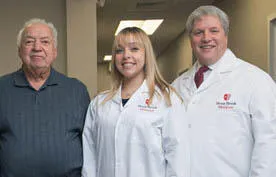
“The CardioMEMS Heart Failure Monitoring System lets us keep track of a patient’s heart function, so we can spot early signs that someone with heart failure is getting sicker and treat them without admitting them to the hospital,” said Hal Skopicki, MD, PhD, Co-Director, Heart Institute and Chief, Cardiology.
“The CardioMEMS device is small, about the size of a dime and is implanted via a catheter (a thin, flexible tube). It permanently resides in a blood vessel to detect pressure pushing back on the lungs from the heart,” said Puja Parikh, MD, MPH, Interventional Cardiologist.
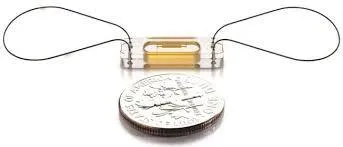
The Device Alerts the Care Team of Changes to the Patient's Condition
Once the patient receives the implanted device, the patient lies down on a specialized pillow for only a few minutes each morning to collect and transmit information from the implanted CardioMEMS device to the patient’s care team at the Heart Institute. Nearly automatically, the device transmits information on the patient’s fluid retention and pulmonary artery pressure securely over the internet, without the need for the patient to leave their home.
“The device can alert the patient and their care team of critical changes to the patient’s condition — often before the patient notices symptoms such as swelling or weight gain,” said Dr. Skopicki. “This allows us to make proactive adjustments early to help our patients enjoy an improved quality of life.”
“It’s very common for people with heart failure to not notice the more subtle signs of a worsening condition,” said Lauren Pilato, Nurse Practitioner, Heart Failure and Cardiomyopathy Center. “CardioMEMS allows us to watch the trends of each patient’s specific numbers very closely, so the care is very personalized.”
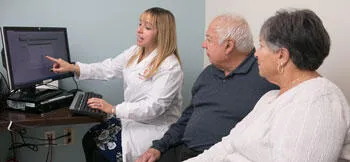
Living Life With Confidence
Mr. Indence has been monitored with the CardioMEMS device since 2017, and he and his wife Vicky, were happy to lead a normal life with a lot less worry — knowing that there is someone on the other end watching his symptoms and calling when a change is needed. “We've traveled to Florida often and Tom finds the pillow easy to use and to travel with. It’s part of his daily routine,” said Mrs. Indence. “We both a have a new sense of confidence. Stony Brook’s cardiologists and Heart Failure Team are like family to us, and we are grateful for their watchful eyes.”
